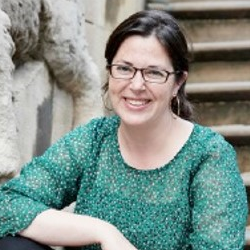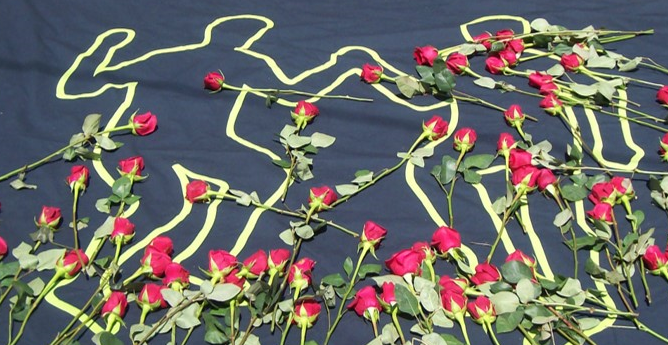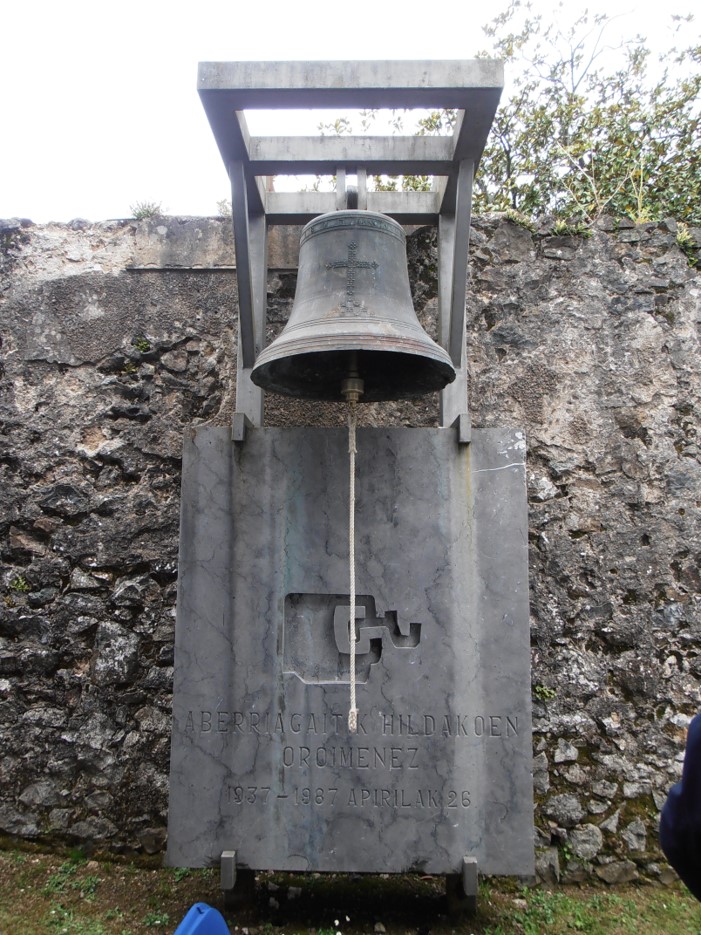Job Titles

Department of Archaeology
My research interests lie in the nexus between cultural heritage and the political uses of the past. At the moment my work focuses on how cultural heritage can be a vector for violence both as a target and instrument - including dynamics threat, fear, anxiety, uncertainty, and risk. I am especially interested in how cultural heritage is used, and abused, during armed conflicts to divide, exclude, and intimidate. The motivation behind this line of questioning is to try and discover potential mechanisms for ‘disarming’ heritage so that it can be a tool for constructive dialogue, dignity, and respect. More recently, I have been working on assessing the harm done by attacks on cultural heritage and how a nuanced understanding of this might inform measures of repair. This line of research has led me to investigate recent developments at the International Criminal Court and work by the Trust Fund for Victims.
Coming out of, and feeding into, this main line of my research are others such as trying to understand how developments in the neuroscience of memory might be applied to heritage studies, heritage ecologies, and how our perception of risk informs our valuation of heritage.
I regularly collaborate with NGOs and international organisations on matters of cultural heritage, its uses and interpretation, especially as they relate to conflict and humanitarian interventions.

My research interests lie at the nexus between cultural heritage and the politics of the past. At the moment my work focuses on violence - including dynamics threat, fear, anxiety, uncertainty, and risk. I am especially interested in how cultural heritage is used, and abused, during armed conflicts to divide, exclude, and intimidate. The motivation behind this line of questioning is to try and discover potential mechanisms for ‘disarming’ heritage so that it can be a tool for constructive dialogue, dignity, and respect.
Coming out of, and feeding into, this main line of my research are others such as trying to understand how developments in the neuroscience of memory might be applied to heritage studies, and the relationship between cultural and natural heritage.
Until now, the study of the destruction of cultural heritage during wars has focused on the material damage suffered by sites or on the looting of objects. This focus on material destruction has overlooked what might be underlying this form of violence. The proposed research project will further develop the theory of ‘cultural violence’, applying it to violent acts against cultural heritage. It is hoped that the insights gained from this work will help inform national policies more likely to strengthen plural societies. On an international level this research could help develop practical tools for agencies working on post-conflict reconstruction projects and strengthen measures for protecting heritage sites during conflicts.

Púbico – “Patromónio cultural em conflict: da violência à reparação”, 15 April 2021:16-17.
Hay Festival – Public Lecture: “War on Culture – the politics of reconstructing cultural heritage”, 3/06/2018. https://www.hayfestival.com/p-14070-dacia-viejo-rose.aspx?skinid=16
In Our Time – Guest-speaker on the episode on Picasso’s Guernica, BBC Radio 4, 2/11/2017 https://www.bbc.co.uk/programmes/b09bxkdm
Europe Now – “Cultural Heritage and the Politics of the Past“ interviewed by S. Teichman, Issue 6, 04/2017: https://www.europenowjournal.org/?s=Viejo+Rose
University of Cambridge Research, “Do Memorials Matter?”. 2011. www.cam.ac.uk/research/discussion/do-memorials-matter
Videos: Reconstructing Spain: www.youtube.com/watch?v=Iyt55Od7YUE&lr=1

Before making a speculative approach to me about your PhD project, please think about the following:
1. Why do you want to work with me in particular as your supervisor? It is important that we are excited about the same sorts of questions and that you clearly lay out why you are actively interested in working with me specifically.
2. What will you bring to the Cambridge Heritage Research Centre? I am keen on working with people who can bring unusual skills and creative approaches to takling questions about heritage, not just an interesting case study. A strong academic trajectory, a long-standing passion for heritage, and some practical experience in the field are the minimum expectations, not qualifications in themselves.
3. How will you fund your research? Funding in the Humanities is notoriously difficult to come by so you need to have a realistic plan for covering expenses related to field-work.
4. Why do you want to do a PhD? A PhD is difficult, intensive and all-consuming requiring serious dedication. Most PhD graduates do not end up working in academica and post-doctoral research posts are very hard to come by so you need to have realistic expectations and a clear reason for doing one.
Monographs
|
[1] |
2011 Reconstructing Spain: Cultural Heritage and Memory after Civil War. Brighton: Sussex Academic Press. (2013 softcover) |
Edited Volumes
|
[1] |
2019 (ed. with M.L.S.Sørensen & P.Filipucci) From History to Heritage: Memorials and Memorialisation. London: Palgrave. |
| [2] | 2015 (ed. with M.L.S.Sørensen) War and Cultural Heritage: Biographies of Place. Cambridge: CUP. |
Journal Articles
|
[1] |
2019 Moffett, L., D. Viejo Rose & R. Hickey. “Shifting the paradigm on cultural property and heritage in international law and armed conflict: time to talk about reparations?”, International Journal of Heritage Studies, DOI: 10.1080/13527258.2019.1666295 |
| [2] | 2015 “Cultural heritage and memory: untangling the ties that bind.” Culture & History Digital Journal, 4(2): 2018. DOI: http://dx.doi.org/10.3989/chdj.2015.018. |
| [3] | 2013 “Reconstructing Heritage in the Aftermath of Civil War: Re-visioning the Nation and the Implications of International Involvement” in the Journal of Intervention and Statebuilding, vol. 7/ issue 2, 2013, 125-148. DOI: 10.1080/17502977.2012.714241 |
| [4] |
2011 “Memorial Functions: Intent, Impact and the Right to Remember” in Memory Studies, Oct, issue 4.4. DOI : 10.1177/1750698011411367 |
| [5] | Lee, HK and D. Viejo Rose. “The Eclectic Heritage-Scape of a Tense Border in Paju, DMZ, South Korea”, Korea Journal, vol.63, no.2: 46-93. DOI: 10.25024/kj.2023.63.2.46 |
Book Chapters
|
[1] |
Viejo-Rose, D., Renshaw, L. and Filippucci, P., 2023. FROM DEAD PLACES TO PLACES OF THE DEAD: The Memorial Power of Battlefields, Ruins, and Burials in the Warscapes of Spain and the Western Front Doi: http://doi.org/10.4324/9781003195870-24 |
| [2] | 2019 “The Ecotones and Edge Effects of Heritage Borders” in Anna Källén (ed) Heritage and Borders. Stockholm: Swedish Royal Academy of Letters, History and Antiquities. |
| [3] | 2016 “Eternal, Impossible, Returns: Variations on the Theme of Dislocation” in K. von Zinnenburg Caroll (ed), The importance of being anachronistic: contemporary Aboriginal art and museum reparations, Discipline & Third Text Publications: Melbourne, Victoria; pp.103-130. |
| [4] | 2015 with M.L.S. Sørensen, “Cultural Heritage and Conflict: new questions for an old relationship” in E. Waterton and S. Watson (eds) A Companion to Contemporary Heritage Research. Basingstoke & NY: Palgrave McMillan. |
Public Engagement, Outreach and Press (Selection)
| [1] | Items – “The Deliberate Destruction of Cultural Heritage and how (not) to repair it”, 26/04/2022 |
| [2] | Púbico – “Patromónio cultural em conflict: da violência à reparação”, 15 April 2021:16-17. |
| [3] | Hay Festival – Public Lecture: “War on Culture – the politics of reconstructing cultural heritage”, 3/06/2018 |
| [4] | In Our Time – Guest-speaker on the episode on Picasso’s Guernica, BBC Radio 4, 2/11/2017 |
| [5] | Europe Now – “Cultural Heritage and the Politics of the Past“ interviewed by S. Teichman, Issue 6, 04/2017: https://www.europenowjournal.org/?s=Viejo+Rose |
| [6] | The Why Factor – Interviewed by BBC World Service’s for a special program of the Why Factor on “Memorialisation” (two parts), aired Nov. 2014: www.bbc.co.uk/programmes/p029p7l3 |
| [7] | University of Cambridge Research, “Do Memorials Matter?”. 2011. www.cam.ac.uk/research/discussion/do-memorials-matter |
| [8] | Rue 89 – “La culture en période de guerre: une «bombe à retardement »“, interviewed by F. Praz, 15/04/2011 |
Videos
| [1] | Reconstructing Spain: www.youtube.com/watch?v=Iyt55Od7YUE&lr=1 |
| [2] | Reconstructing Gernika’s Foru Plaza: www.youtube.com/watch?v=91RjM3Vr4X4&feature=plcp |
| [3] | Remembering Gernika/Gernika Remembers: www.youtube.com/watch?v=3Q0mfYNZVr0 |
Exhibitions curated (selection)
| [1] | Restoring Truth to Ruins, exhibition co-curated with Sarah Nankivell (21-29 Oct. 2017) and panel presentation (21 Oct.) convened, Cambridge Festival of Ideas, Cambridge Central Library |
| [2] | The Heritage of Displacement: Roots and Routes of Identity on the Move, Photo exhibition 17-24 October 2016, McDonald Institute for Archaeological Research |
| [3] | Another Day Lost: 1,888 and Counting, Pop-up exhibition of Issam Kourbaj’s piece on the war in Syria, Dpt. of Archaeology, 14 May 2016 |
| [4] | Reconstrucción del patrimonio en la posguerra. Regiones Devastadas en Gernika, Museo de la Paz de Gernika, Gernika, 1April – 1 Oct. 2015 |
|
[1] |
2018 Book Review: White, Geoffrey M. Memorializing Pearl Harbor: unfinished histories and the work of remembrance, in Journal of the Royal Anthropological Institute, 24(1): 208-209, March 2018. DOI : doi.org/10.1111/1467-9655.12783 |
|
[2] |
2017. “Cultural Heritage and Politics of the Past: An Interview with Dacia Viejo-Rose”, in EuropeNow, April 2017 issue. Columbia University: New York. www.europenowjournal.org/2017/04/03/cultural-heritage-and-politics-of-t… |
|
[3] |
2017 Book Review: Heritage and Peacebuilding, in Heritage & Society, vol. 7, Issue 2, pp.:193-197. DOI : 10.1080/2159032X.2017.1367488 |
|
[4] |
2014 “Cultural Heritage Management and Armed Conflict ” in C. Smith (Editor-in-Chief). Encyclopaedia of Global Archaeology. New York: Springer Reference, pp. 1870-1875. |
|
[5] |
2014 “Entrevista: Dacia Viejo-rose: ‘El patrimonio cultural: ¿potenciador de diálogo y sentido unificador o de desencuentro y violencia?’” in revista ph, n. 85 of the Instituto Andaluz del Patrimonio Histórico, April 2014, 232-236. |
|
[6] |
2013 “Review of Exhuming Loss” in Cambridge Archaeological Journal, vol. 23, issue 1, February pp. 129-130. |
|
[7] |
2013 “Review of A European Memory? Contested Histories and Politics of Remembrance”, in the journal of Southeast European and Black Sea Studies, vol. 13, issue 1. |
|
[8] |
2012 “Cultural Destruction” in H. Anheier, M. Juergensmeyer, V. Faessel (eds.), Encyclopaedia of Global Studies. London: Sage, pp. 322-325. |
|
[9] |
2003 “Issues of Evaluation in Humanitarian Arts Projects”, in Y.R. Isar (ed.) Artistic Activism: Towards an evaluation of the use of cultural activities in situations of conflict. Brussels: IETM, pp. 38-50. |
|
[1] |
2011 Isar, Y.R., D. Viejo-Rose and H.K. Anheier, “Introduction” in Isar, Anheier and Viejo-Rose (eds), Cultures and Globalization Series, vol. 4, Heritage, Memory and Identity. London: Sage, pp. 1-20. |
Supervision of the following successfully completed PhDs:
Pablo Alonso González, “Nation-building and cultural heritage in post-colonial Cuba, 1898-2014” (2011-2015)
Mathilde Leloup, "Défendre l'humanitéen protégeant son patromoine. Un nouveau mandat pour les opérations de pais onusiennes" (Sciences Po Paris, 2016 - 2020)
Thomas Crowley, “Heritage on the Margins: Brokerage and Enchantment on Pakistan’s Northern Frontier” (2016 -2021)
Alisa Santikarn, The Last Elephant Catchers: (In)Visible Indigenous Heritage in Thailand (2018-2022)
Alicia Stevens, Liminal Heritage and Political Transition in Burma/Myanmar since 1824 (2018-2023)
Currently supervising the following PhDs:Mariana Pinto Leitao Pereira, Working title: “Heritage of (be)longing, (be)longing as heritage? Expressions of inclusion and exclusion in the Macanese diasporic communities” (2018 - 2024)
Oliver Antczak, Working title: "Comparing Colonial Experiences: Indigenous Identities in the Southern Caribbean", (2019 - 2024)
Stanley Onyemechalu, Working title: "The Transformative effects of Civil War on Heritage: The Case of Biafra", (2021- )
Advisory Board member (Consell Assessor), Institute Català de Recerca en Patrimoni Cultural (ICRPC), 2024-present
Advisory Board Member (SABI), Institute of Heritage Sciences (INCIPIT, Santiago de Compostela, Spanish National Research Council), 2022-present
Trust Fund for Victims, Expert consultation on the implementation of reparations in the Al Mahdi case, August-September 2018, continued collaborations 2018-present.
Greater London Authority, Commission for Diversity in the Public Realm, Expert opinion on contested heritage, January 2022
European Peacebuilding Liasion Office, Expert opinion: Civil Society Meeting on Cultural Heritage as a Component for Peace and Security in Conflict and Crisis Zones, 3-4 March 2021
UNESCO, Invited participant: Recovery of Palmyra, 19 December 2019
UNESCO, Invited participant: Expert meeting on sites associated with recent conflicts and other negative divisive memories, 4-6 December 2019
International Criminal Court, Expert consultation: ICC cultural protection expert meeting, 10 July 2017

Postal Address:
Department of Archaeology
Downing Street
CB2 3DZ Cambridge
Information provided by:



© 2024 University of Cambridge